Content from the Brookings Doha Center is now archived. In September 2021, after 14 years of impactful partnership, Brookings and the Brookings Doha Center announced that they were ending their affiliation. The Brookings Doha Center is now the Middle East Council on Global Affairs, a separate public policy institution based in Qatar.
With the operation in Mosul well underway, Iraq expert and Brookings Doha visiting fellow Ranj Alaaldin sat down with Brookings Doha’s Communications Assistant Sumaya Attia to discuss why Mosul’s liberation may not be limited to an ISIS defeat, as well what to expect for the future stabilization of Iraq. This interview has been lightly edited for length and clarity.
Sumaya Attia (SA): The campaign to re-take Mosul is gaining traction, and there are many different actors involved. Who would you say are the biggest stakeholders in the outcome of Operation Mosul?
Ranj Alaaldin (RA): The biggest stakeholders are the political, social, and religious actors who have dominated the Iraqi political scene over the last ten years. That includes the parties that dominate the Kurdistan Region Government (KRG) and the Shiite Islamist parties that dominate the government in Baghdad. Iraq’s main Kurdish and Shiite political and social movements entered the post-2003 political order with a history of organization and mobilization against the former regime. They were fully functional and could capitalize on whatever opportunities followed the 2003 invasion.
The opportunities—and risks—are still there, and there’s all to play for, as the KRG and the Baghdad government have outstanding disputes regarding Iraq’s energy resources and disputed territories. The KRG wants to build on the autonomy it currently has and perhaps even accelerate its push for statehood, while the federal government in Baghdad (and the array of autonomous Shiite militia groups) want to secure their long-term political and security interests.
A number of Arab Sunni blocs have also recently emerged as key stakeholders, with each of these rival groups vying to dominate the political and administrative structures that emerge in the post-ISIS environment in Mosul and elsewhere in northern Iraq. These various actors also have foreign backers and patrons, which adds another layer to the already complicated political and security environment.
SA: What about the rest of Iraq? How was power divided between minority groups, (the Kurds, Yazidis, and Chaldeans) before ISIS entered the scene?
RA: The minority groups in Mosul have almost always fared worse than others in Iraq. They lack the necessary resources, the autonomy, and the political organization to protect their respective communities, secure their rights, and enable them to compete with other groups in the country. They were always going to be at a disadvantage in a post-2003 political order where ethnic or religious mobilization was so crucial to acquiring power and resources.
Minority communities have generally been stuck between a rock and a hard place. They’ve had to balance their security needs with administrative failures on the part of Iraq’s political establishment. There are quotas for minorities to ensure they have fair representation and a stake in the political process, and they have often formed coalitions with Iraq’s major political actors, but this has proved to be inadequate. They’re stuck between competing actors who have instrumentalised minority groups in their disputes over territory, power-sharing, and Iraq’s energy resources. Some groups have started to develop the capacity to become political actors in their own right. They have even established their own militias with local and foreign support.
It is also important to remember that, like Iraq’s other ethnic and religious groups, minorities in Iraq are not a homogenous grouping. There is not a single, distinct minority group. Not all minority groups are the same. Their future remains uncertain and the key domestic and regional actors will attempt to win them over in preparation for the negotiations (and potential conflicts) that could follow the liberation of Mosul.
SA: In your latest article in The Guardian, you argue that obliterating ISIS won’t necessarily solve Iraq’s problems. How much of a role do you believe ISIS has played in the current state of Iraq?
RA: If the Iraqi state isn’t in control of its own territories and doesn’t have a monopoly over the use of force that means it’s no longer a fully functional state, it’s a failed state. But this is the military aspect of the problem, which is much easier to resolve when you have a heavy, international military footprint in Iraq. ISIS is a very simple problem to deal with militarily. It’s an organization that has manifested itself in many forms in the past and will continue to manifest itself, even if ISIS—the brand—is no longer there. You will still have terrorism in Iraq.
It’s an organization that has manifested itself in many forms in the past and will continue to manifest itself, even if ISIS—the brand—is no longer there.
The reason why it’s taken so long to liberate Mosul is the absence of a fully functional and viable security force. The local security force is heavily fragmented and there are limited political and constitutional arrangements that regulate and hold accountable the many forces involved in the Mosul operation. It’s the structural conditions and the political structures that will decide the future of Iraq and ISIS is a very small part of the equation. The pessimism largely comes from the fact that the problems Iraq had pre-ISIS have become exacerbated: the lack of reconciliation and good governance, corruption, ongoing sectarian grievances, and the prominence of violent non-state actors like Shiite militias. We also must not forget that there’s still a civil war ongoing in Syria, which will almost certainly continue to destabilize Iraq. Iraq’s problems and challenges are generational challenges and won’t be resolved in the coming months and years.
SA: Are these conditions getting worse? What are the biggest inhibitors of political reform in Iraq?
RA: They’ve actually become much worse since ISIS emerged. The build-up of forces in and around Mosul has as much to do with the local rivalries, and how these rivalries develop after the liberation, as it does defeating ISIS. Don’t expect them to leave northern Iraq anytime soon. Each of the principal actors involved in the Mosul operation are vying to define Iraq’s future according to their own ambitions. Some, like the Kurds, seek greater autonomy, if not an accelerated push towards independence; others, like Iraq’s ruling Shiite Islamist parties, want to secure their own long-term security interests and leverage the gains they make in Mosul in relation to their disputes with the Kurds and Iraq’s other political actors. This includes the various Arab Sunni groups who are looking to the Mosul operation and the post-ISIS Iraq to secure their own autonomous Arab Sunni region, akin to the Kurdistan Region or, at the least, a decentralized Iraq that gives them sufficient resources and power.
Shiite militias are also in competition with Prime Minister Haider al-Abadi’s government, as well as the Kurds, and are vying for increased political capital, particularly with elections around the corner. The Mosul operation could decide which of these actors will come out on top. That’s what makes it a dangerous and complicated operation.
SA: Without ISIS control of Mosul, can we expect a stable government?
RA: The political structures aren’t there to allow for stable and effective governance. What Mosul will need is a respected and legitimate actor, or even a series of actors, capable of building on the military gains made during the course of this liberation.
What I anticipate is a prolonged period of interaction between the different stakeholders within and outside of Mosul. There is an opportunity to establish a consensus-based form of politics and engagement but this should involve broader sections of the local population in Mosul and not simply the men with guns and cash. One of the most important challenges will be integrating IDPs back into their communities and into the local economy, as well as rehabilitating the towns and cities that have been destroyed under ISIS rule, which could take many years. That is an opportunity that should not be squandered by the actors in Iraq but also the United States and the international community.
SA: How effective do you think the Kurdish Peshmerga offensive will be in taking control of Mosul?
RA: The Kurds won’t be entering Mosul city itself because that would provoke sensitivities in the local population. They will play a significant humanitarian role because the Kurdistan region has been crucial in providing a safe-haven for internally displaces people over the past two years and over the past decade more generally. Militarily, the Peshmerga will ensure Mosul is surrounded from all sides and help tighten the noose around ISIS. They have a more organized security force, which helps.
But all that really matters and makes a difference in the grand scheme of things is if they’re able to cooperate with the Iraqi security forces or with the other actors involved in this operation. The Kurds bring a number of strengths to the table—but to make them count, you need the right political framework. The relationship could be complicated in the coming period because the Peshmerga have established themselves in a number of disputed territories that have been challenged by Baghdad and other rival groups. However, it is important to point out that the cooperation between the Peshmerga and the Iraqi security forces is unprecedented and does provide a glimmer of hope.
SA: What kind of time frame do you anticipate? Months, weeks?
RA: I anticipate anything between a few weeks or a few months. It depends on the resistance ISIS puts up. I can’t see them going all in with this operation as there’s still a long way to go before ISIS is defeated militarily in both Iraq and Syria. Going all in right now, particularly in Iraq, could be suicidal since they’re up against a very powerful force, which outmaneuvers them in terms of manpower and firepower. They’ll probably revert to insurgency mode and rely on suicide attacks, tunnel networks and IEDs to provide pockets of resistance to the groups that come in and attempt to hold onto Mosul after it is liberated.
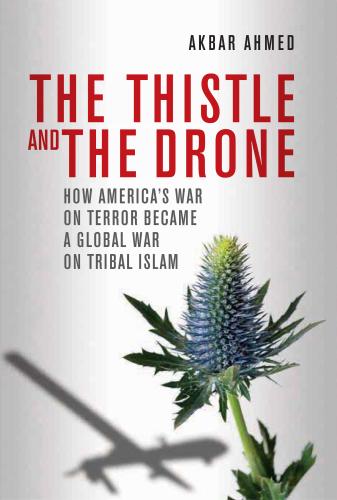
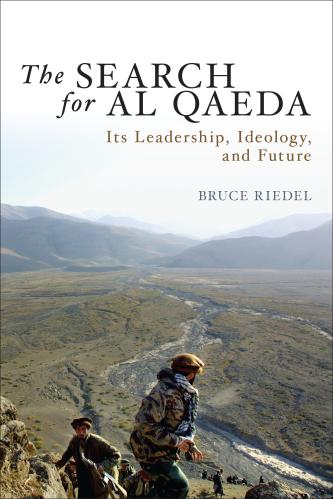
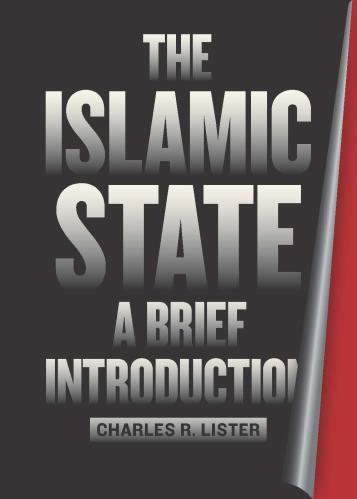
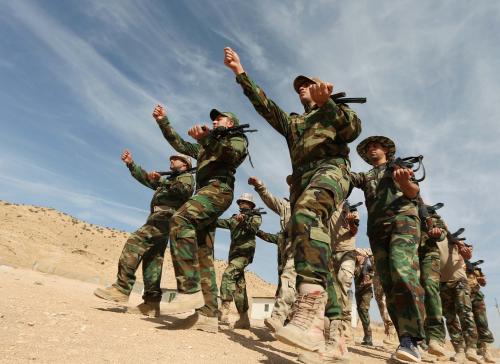

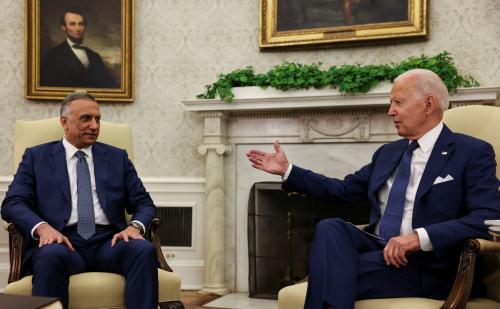
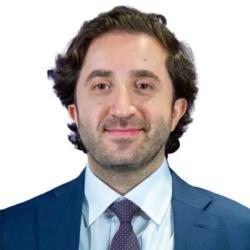
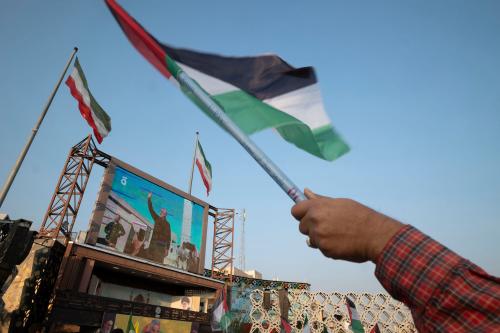
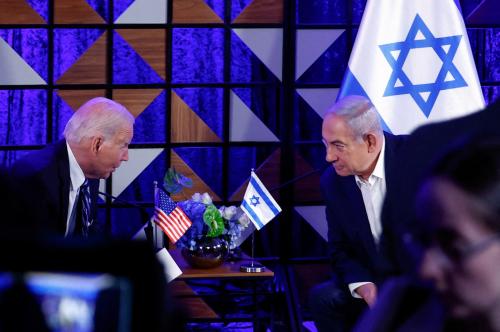

Commentary
Between Iraq and a hard place: How the battle in Mosul will affect ISIS control in the region
October 25, 2016